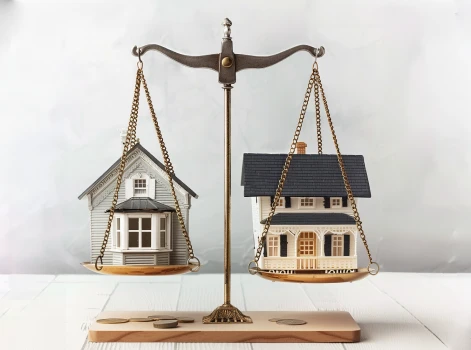Are you thinking about buying your first property?
Most of us dream about jumping into home ownership at some point in our lives. But is now the right time?
We’ve put together some information to help you figure out which option is right for you: buying or renting a property.
When does renting make more sense?
You need the flexibility to move around
The option to pack your bags and move whenever a lease is up is very appealing to people who aren’t quite ready to settle down in one place. If the rent is too high, you can move to another location. If your job requires you to move frequently, you’ll probably find it easier to rent. Renting gives you the flexibility to change your living arrangements to match your lifestyle.
You have not saved enough to pay upfront costs
You don’t want to pay for maintenance
You want more freedom to diversify your investments
You can’t afford to buy where you want to live
When does buying make more sense?
You want the freedom to renovate and modify your home
When you own the home, you’re free to make any modifications and renovations (subject to council approval.) You don’t need to ask the landlord for permission to paint the walls or hang a picture.
You want to build equity
You’d like to access the tax incentives and deductions of owning a home
You’re seeking the stability of home ownership
You have a healthy saving habit
Pros and cons of renting instead of buying
| Pros | Cons |
|---|---|
| You can uproot and move once your rental lease ends without the need to sell the property. | Once you pay your rent, the money can’t be recovered. You don’t get any returns from the rent you’re paying. |
| Lower cost of living as you don’t need to pay for things like council rates, land tax and home insurance | There is little freedom to modify or customise your space without the landlord’s permission. |
| You know how much rent is due and can budget accordingly. | You’re at the mercy of the landlord, who might evict you. |
| You have more liquid assets, as your money isn’t tied down to a house. You can diversify your investments. | The rent is paying off the landlord’s mortgage. |
Is rent money dead money?
Many believe that since you don’t get any return from the rent you’re paying, it’s dead money. However, this is not always true, especially if you’re able to save money and rent at the same time. You can then invest your savings into a high-interest term deposit or the sharemarket.
Pros and cons of buying instead of renting
| Pros | Cons |
|---|---|
| The money is going towards paying your mortgage, and once it’s paid off, you own the home. | If you can’t keep up with repayments, then there is a possibility of repossession. |
| You might be able to access the equity in your home to make other purchases. | The upfront costs are high. You usually need a substantial deposit and there are other costs such as stamp duty, conveyancing and mortgage fees. |
| Buying a home gives you stability and security as there’s no landlord to evict you. | The value of the property could decrease depending on the overall property market. |
| There are many home loan options available to help you get onto the property ladder. | You have to account for maintenance and ongoing costs like council rates and land tax. |
How much deposit do I need to buy a home?
If you want to avoid paying Lenders Mortgage Insurance (LMI) fees, then you’ll need to save at least 20% of the property value as a deposit. Fortunately, there are low deposit home loan options available, and for first home buyers, a guarantor home loan is a great option if you don’t want to pay LMI fees. There are various grants and stamp duty exemption options for first home buyers across Australia, which help to lower the upfront costs when buying a home.
Buy vs Rent: Ask the right questions
Of course, we’re using hypothetical scenarios to explain why one option is better than the other. Since your circumstances are unique to you, we’ve outlined some questions you can answer to help you make your decision of whether to rent or buy:
- Will you live in the location for more than 5 years?
- Do you have stable employment?
- Can you bear the costs of the mortgage and maintenance without getting into financial hardship?
- Did you get the best deal on your interest rate?
- Can you let go of a flexible lifestyle?
- Did you choose the right location?
- Are you ready for stability?If you’re going through changes like job, divorce, then it is better to rent.
- Have you paid off your large debts?
If you answered mostly yes to the questions above, then you could focus your efforts on buying a home. We also have a rent vs buy calculator to help you compare the costs and help you decide which option is right for you.
Final thoughts
Don’t jump onto the bandwagon of buying a property just because interest rates are low. While the interest you pay on your mortgage is a determining factor when buying your home, there are other expenses involved. The rent vs buy decision is not an easy one to make, and it’s helpful to get the advice of experts to ensure you have all the information you need. Our mortgage brokers can assess your situation and provide you with home loan options that suit your needs. Call us on 1300 889 743 or fill in the free assessment form.
